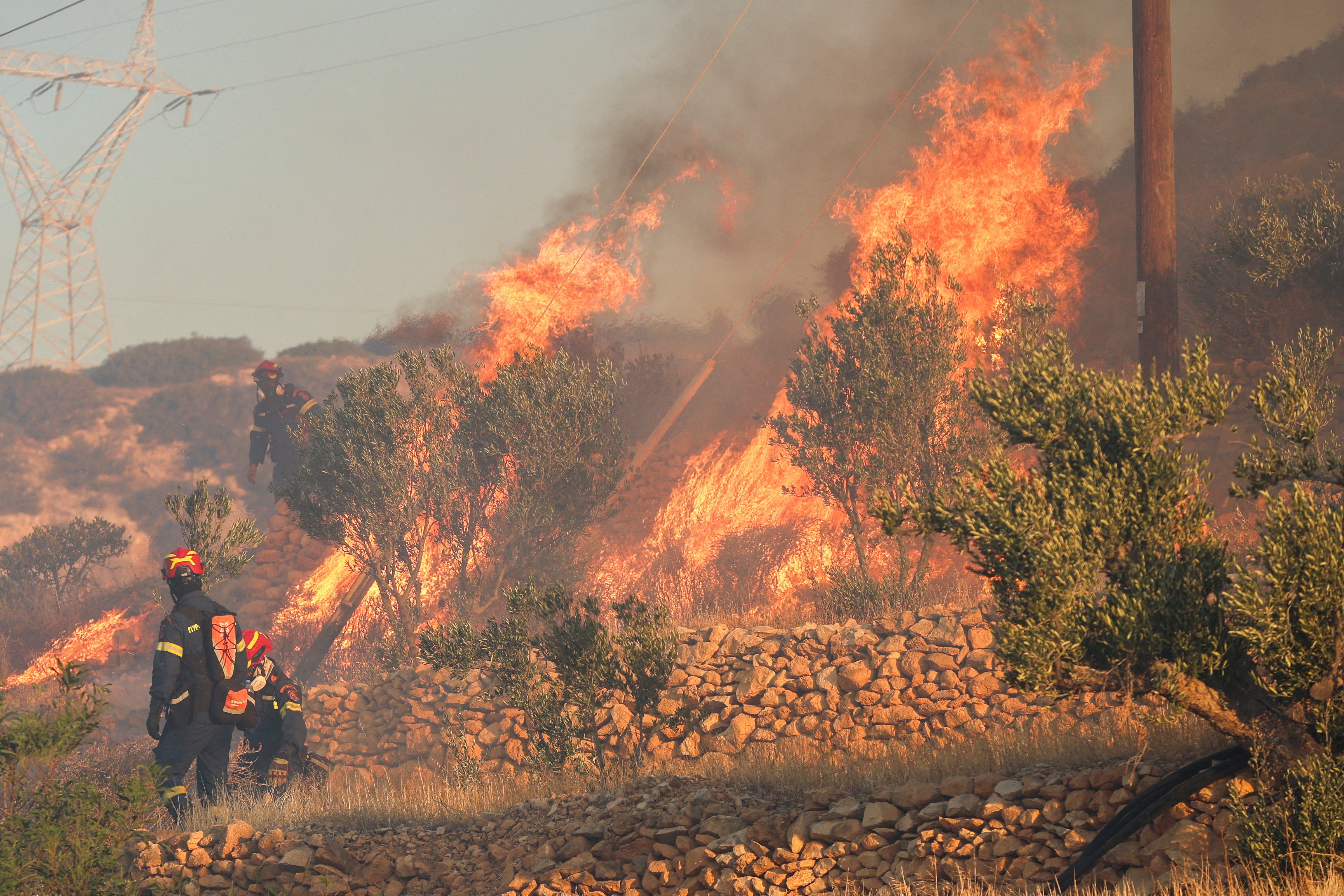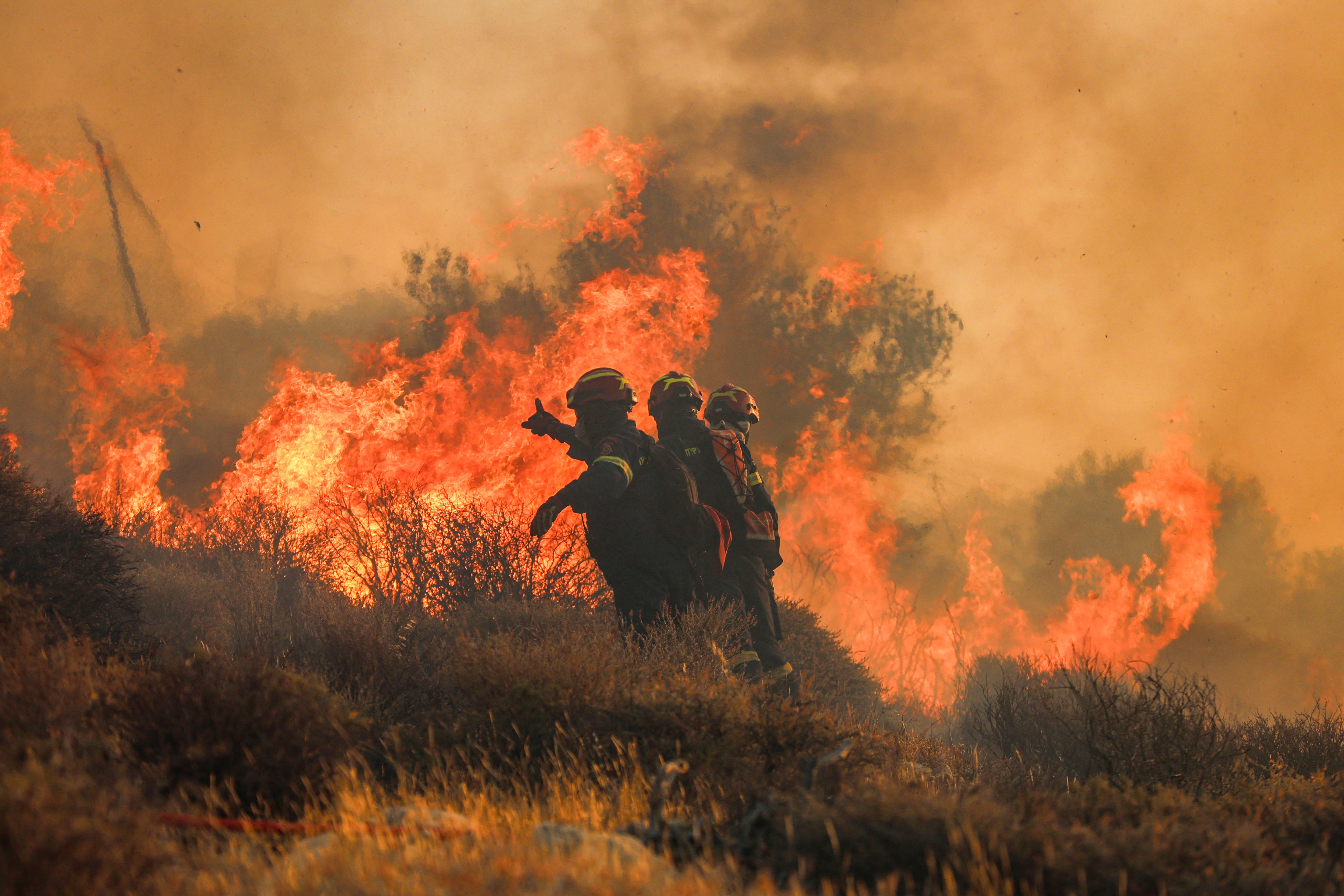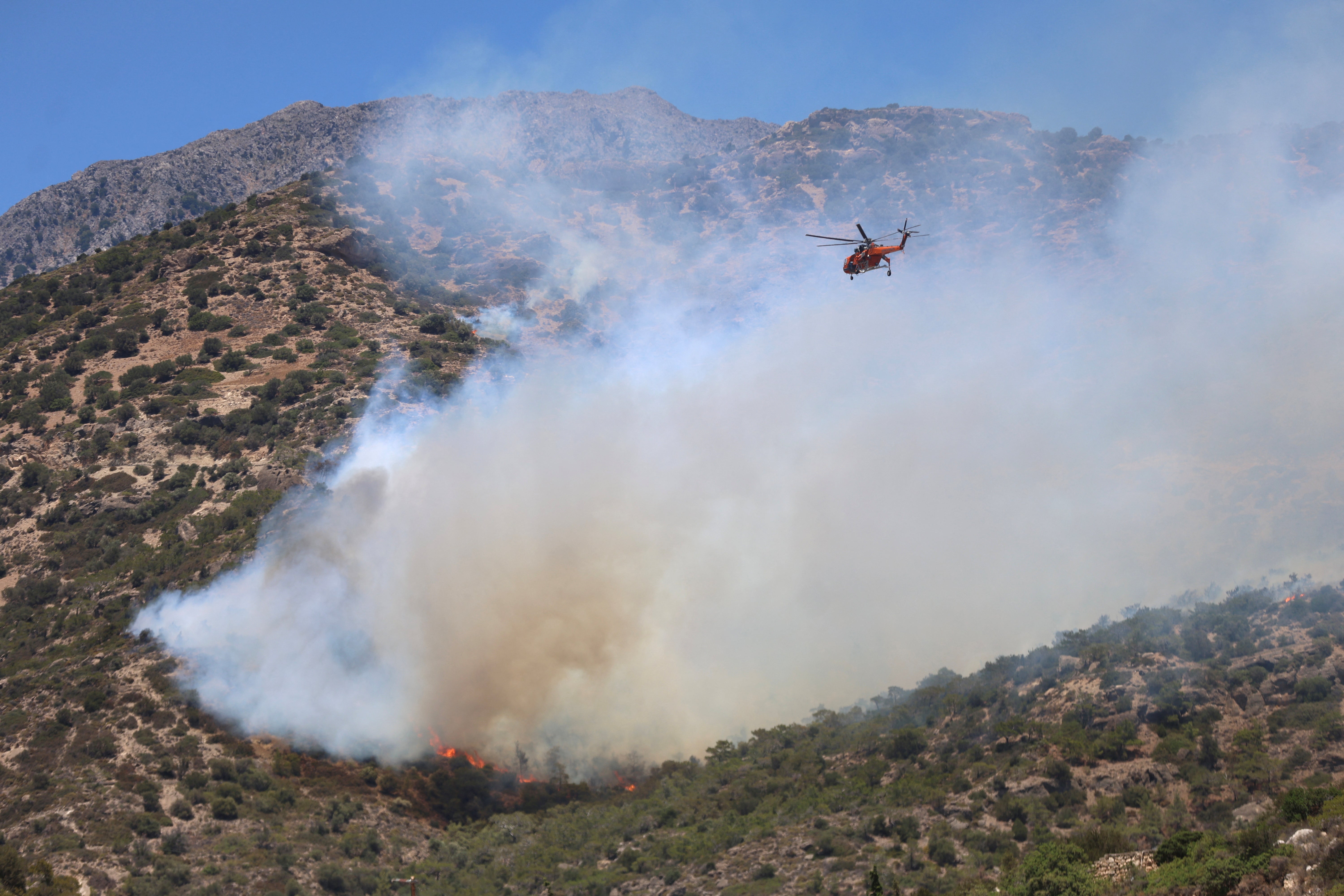At least 5,000 tourists were forced to evacuate parts of Crete as a massive wildfire scorched forests and olive groves on the Greek island.
Around 230 firefighters, along with 46 engines and helicopters, rushed to tackle the blaze on Thursday, which broke out the day before in the forested hills near Lerapetra on the island’s southern coast.
People from villages including Achlia, Ferma, Agia Fotia and Koutsounari and surrounding tourist resorts and hotels were evacuated to Ierapetra’s indoor sports hall for shelter.
Winds of up to 50mph spread the blaze south, as reinforcements flew in from Athens to help put out the fire.
The inferno destroyed homes in places including Agia Fotia, while at least four people were rushed to hospital after inhaling smoke, according to the BBC.
The blaze encroached upon houses and hotels that were earlier evacuated, stoked by intense winds that “rekindled and hindered firefighting efforts”, fire brigade spokesperson Vassilis Vathrakogiannis said.
The government issued mobile phone alerts for the evacuations and appealed to residents not to return to try to save their property.
The fire began in an area of dense, flammable vegetation between Agia Fotia and Schinokapsala, with steep slopes, parched ground and gusty winds making containment extremely difficult.
Authorities said the fire has been difficult to contain, and 230 firefighters continue to battle the blaze with help from 10 water-dropping aircraft.
“It’s a very difficult situation. The fire is very hard to contain. Right now, they cannot contain it,” Nektarios Papadakis, a civil protection official at the regional authority, said.

“The tourists who were moved out are all OK. They have been taken to an indoor basketball arena and hotels in other regions of the island.”
Two people were evacuated by boat overnight on Thursday, while six private boats were on standby in case further evacuations by sea became necessary, the coast guard said.
Vice-prefect Yannis Androulakis confirmed that the blaze, which had “three active fronts” and spread quickly because of strong winds.
“There are still a number of different fronts. The fire is burning scrubland and crops,” he said. “The winds are very strong – up to nine on the Beaufort scale.”
Greece and other countries in the Mediterranean are in an area scientists have called “a wildfire hotspot”, with blazes common during hot and dry summers. These have become more destructive in recent years, authorities say, due to a fast-changing climate.

Meanwhile, in Turkey, thousands fled wildfires as the country battled blazes in Cesme and Odemis districts for a second day in the western coastal province of Izmir.
Winds hindered their efforts as the flames approached a main highway to Cesme, local TV footage showed, and thick smoke billowed over mountainous areas.
Large parts of Greece remain under an orange alert for fire danger as the summer wildfire season continues. Last week, emergency services conducted evacuations near Athens after a wildfire broke out near the capital.

Athens and the surrounding region remain under an orange alert level, while the Cyclades Islands and the Dodecanese Islands are under a yellow alert, according to the Greek Ministry for Climate Crisis and Civil Protection.
Scientists say heatwaves have arrived earlier this year, spiking temperatures by up to 10C in some regions as warming seas encouraged the formation of a heat dome over much of Europe, trapping hot air masses.
Last year, Greece experienced its warmest summer ever, with 111,200 acres torched by wildfires, according to WWF Greece and the National Observatory of Athens.
Even more land was damaged in 2023, when almost 432,400 acres were affected by wildfires as temperatures hit 46C.
Denny's and Waffle House remove egg surcharges as prices fall
Firefighters race to contain wildfires in Greece as thousands evacuated, elderly man dies in Turkey
Ukrainians run for cover as Russia strikes in biggest overnight attack of war
Huge explosion in centre of Rome injures multiple people as locals flee for safety
Ukraine war latest: Russia launches biggest air attack of war after Trump-Putin call







